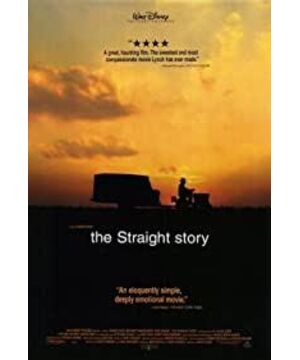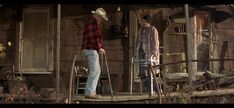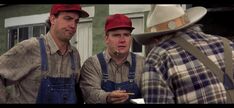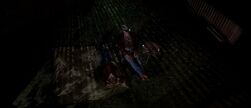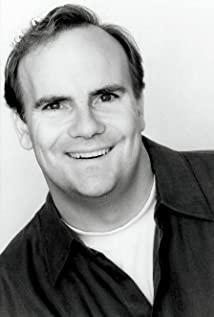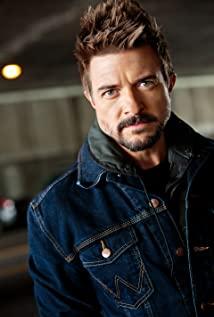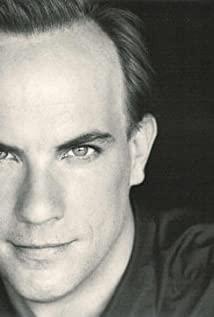"Crossing the Gate" and David Lynch's "Mr. Streeter's Story" are obviously similar. They are all road movie themes, and the content of the film is also the story of an elderly country man who uses his unique means of transportation to visit his old friends across the distant mountains and seas, reconcile and say goodbye to himself. Difficulties and obstacles along the way are inevitable, but due to the protagonist’s own charisma and life experience, he constantly interacts with people in behavior and spirit along the way, accepting help with restraint, and selflessly letting passers-by feel their enthusiasm And sincerity, and even help the lost to return to the trajectory of life. In addition, the two films are full of local local flavor, unique scenery, humanistic features, language, and folk customs, which make the audience deeply immersed in the spectacle-like cultural atmosphere when they follow the protagonist on the journey.
As far as the establishment of the theme is concerned, in general film and television screenwriting classes, we will learn that the story comes first, and the theme follows. The themes of these two films undoubtedly emerge gradually with what the protagonists see and feel. The characters that "Mr. Streeter's Story" encounters along the way range from a young rebellious girl, to a young and vigorous youth road cycling team, to a kind-hearted middle-aged family, an old World War II veteran, Finally, the cemetery priest, the protagonist's life has undergone a complete reproduction and reconstruction. Time does not stop, life is short and heroic.
Combined with the analysis of the theme of the film based on the structure of the story, "Mr. Streeter's Story" uses the brush and ink in every place along the way, and the theme is simpler. At the end, Streit met his younger brother, and the two old men met in their old age. All the words were contained in the deep eyes and faint tears, which were touching. The setting of "Crossing Chaoguan" is different. The old man's journey is not alone. He takes his grandson on summer vacation to find old friends. From this setting, we can also see the different themes, one is the course of life, the other is the reincarnation of life. Therefore, in terms of story structure, the course of life only needs to go from one endpoint to the other to complete the growth and transformation of the entire experience, but the ending of "Crossing the Pass" cannot stop at "old age" and "find", it must return At the starting point, the exploration of philosophical propositions must be completed in the transition between old and new and inheritance. In "Crossing the Chaoguan", the old man and his comrades finally meet, but the meeting is extremely short and hasty. No moment can stay, no moment can we face it with complete preparation and full mental strength, it all comes from unexpected encounters. Immediately after that, the old man returned home and found the sudden death of his dumb friend and the birth of the old man's little grandson. Compared with "The Story of Mr. Street", which is a pure celebration of life, I prefer the historical background and humanistic meaning implied in "Crossing the Chaoguan Pass". Whether it's the story of a dumb friend or the conversation with the beekeeper, I feel a sense of absurdity and nothingness, more detached from "liberation" or "admiration", and a direct touch on life and destiny. Heaven and earth are not benevolent, and all things are dogs.
There are not too many contrasts in the character creation, and the two old people have distinct character characteristics that are in line with the background and era of the characters. Three-dimensional, vivid character is an important factor for the success of the film.
View more about The Straight Story reviews


